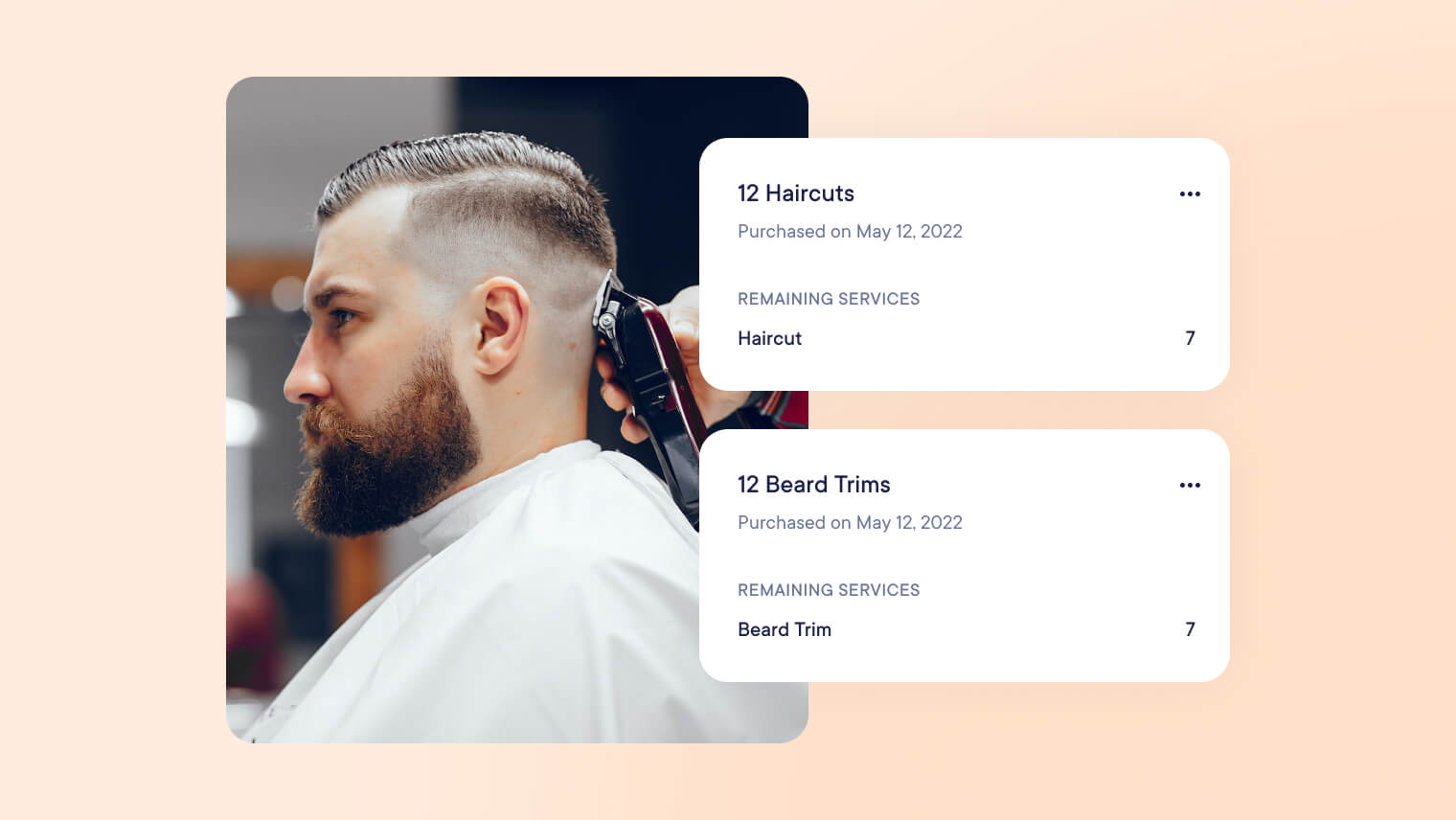
A complete guide to med spa tipping and etiquette
Should your medical spa accept tips? Are clients expected to offer medspa gratuity? Find your answers here.
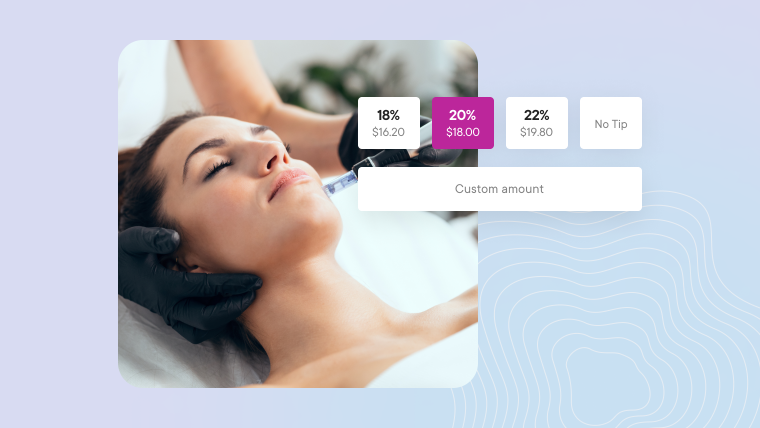
Content Marketing Manager
In the US, tipping can be a sensitive subject — and the social expectations become especially unclear when you step into a medical spa. While some sources might suggest the solution here is simple, the answers to medical spa gratuity questions are rather complex. Here are some insights to help you navigate med spa tipping and etiquette.
Tipping: the medical spa paradox
Medical spas are a unique and helpful conjecture of two very different worlds: healthcare and spa services. Combining the best of both realities can offer exceptional convenience and care benefits to clients — but it can also present a tipping paradox that leaves professionals and clients feeling lost:
You would never tip a doctor’s office. In fact, many doctors are not allowed to accept gratuity.
Meanwhile, you would almost certainly expect to tip at a spa. (This etiquette may vary by country, but tipping is a standard practice for salons and spas in the US.)
This paradox can leave medical spas in a tough spot. So, should you accept tips in a med spa? While there are countless ways to handle compensation, there are two especially common stances on med spa gratuity:
Some medical spas decline all tips.
Other medical spas allow tipping for non-medical appointments and practitioners. Let’s take a closer look.
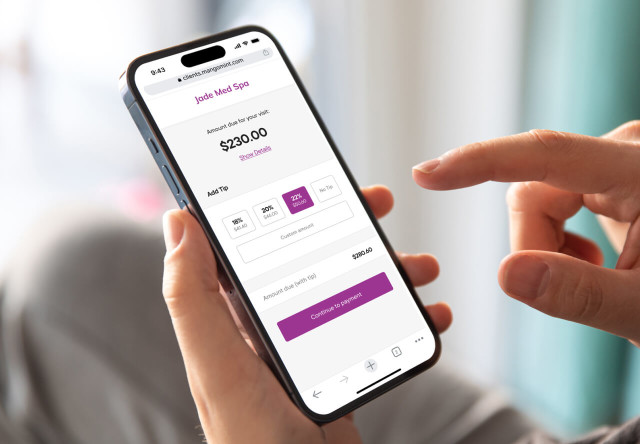
Why many medical spas don’t allow tipping
While clients might want to leave a tip for med spa providers, many facilities do not allow gratuity. Because medical spas are operated by licensed professionals, they often fall under the guidelines of medical practices.
The legal considerations
Technically, there are no US federal laws prohibiting tips for medical professionals. Federal regulations like the Anti-Kickback Statute and the Stark Law do prohibit referral programs and financial incentives that could cloud ethical judgment. However, since gratuity is optional and occurs after an appointment, many tipping supporters do not believe these legal umbrellas apply (though this is up for debate).
The Fair Labor Standards Act (FLSA) tipping laws do apply to medical spas, though they primarily serve to protect employees from tip theft. Additionally, state-level laws may prohibit or regulate tipping practices for medical spas — which is why it is so important to consult qualified legal support in your area before making a final decision.
Despite potential legal loopholes, soliciting tips as a medical professional is still ethically questionable.
The ethical considerations
Tipping practices could be scrutinized or punishable if they violate The Code of Medical Ethics of the American Medical Association (AMA). The ethical regulations on payment for medical professionals are meant to discourage unfair charges and inequitable treatment. You can find the AMA’s Fees for Medical Services guidelines here.
Most of the formal guidelines around medical compensation use broad and vague language, making the exact applications unclear. Regarding these uncertainties, many medical spas feel it is better to be safe than sorry when it comes to gratuity. Additionally, medical experts often feel uncomfortable accepting tips — even where this is allowed. Instead, medical services are priced to ensure professionals can be compensated generously without needing gratuity.
Fresh Tips to Keep Your Med Spa Thriving
Looking for tactical, results-driven tips to scale your med spa? Marketing 100 sends 100 quick-hit video tips to your inbox daily—short, sharp, and ready to implement.



Support for tipping in medical spas
So, why do some med spas support tipping? Despite restrictions for medical gratuity, many med spas can (and do) encourage tips for non-medical providers offering day spa services. These business segments operate more like a traditional spa, and their estheticians may be booth renters who rely on gratuity to offset overhead costs. In these cases, you may find tipping encouraged for non-medical appointments.
Let's take a look at some examples. Would clients tip for Botox services? We can safely say that medical Botox tipping is not expected — and may be prohibited. This is a medical service completed by a licensed provider, and it already carries substantial upfront costs. But can clients tip estheticians for facials or laser hair removal treatment? In some medical spas, this is a resounding yes. Your outlook here will depend on your med spa’s policies alongside the laws and guidelines in your area. Of course, gratuity is always optional — so it is also up to the client to determine their comfort level with tipping where it is allowed.
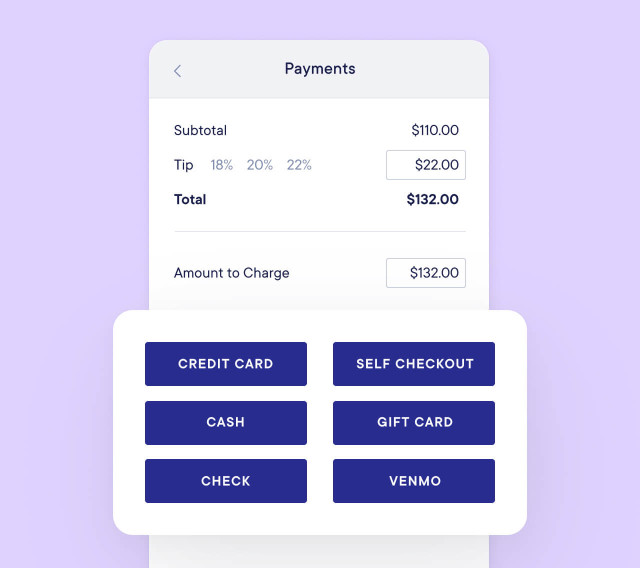
Tipping advice for medical spas
The med spa tipping paradox can create tension in practices and local job markets. You want to stay competitive to retain staff members; however, you must also remain compliant with your local laws. Thankfully, some resources can help you along the way:
1. Consult a legal advisor
Of course, it is up to your medical spas to stay aware and adhere to all the laws that apply to your business. No articles you read online (including this one) can substitute for personalized legal support. Consulting a qualified legal advisor in your area can provide confidence, security, and clarity for your business.
2. Assess your risks
If you find yourself in an area where tipping laws are unclear, it is up to you (and your lawyer) to decide what is best for your business. Ultimately, your license is on the line if an issue arises. Do you feel comfortable accepting tips in your med spa?
3. Communicate your policy
Communication is key. Once you have a policy in place, it is essential to clearly communicate the details to staff members and clients. Make your expectations clear during the hiring process, and be prepared to lose staff members or job prospects who might disagree with your decision. You can help combat staff turnover by ensuring your services are priced to support fair compensation for all employees.
4. Prepare your staff to enforce the rules
Clients might feel uncomfortable when they are unable to tip spa professionals. If your medical spa decides not to accept tips, ensure you set your staff up for success. Make your tipping policy available online and in your facility to help avoid any client confusion.
If a customer still tries to tip, your staff should be ready to put them at ease and breeze through any awkward conversations with an explanation of why the practice does not allow gratuity for medical appointments. Clients who sense resentment or reluctance from staff members declining tips might leave your med spa with a poor taste in their mouths.
For med spas that permit gratuity after esthetic services, be ready to regulate tipping. A recent column in The New York Times sparked outrage after a client mistakenly tipped their medical provider several hundred dollars while groggy on anesthetics. Both the client and the columnist understood the medical spa’s need to present a gratuity screen for non-medical services. Still, they criticized the clinic for accepting the tip without intervening. To avoid gratuity errors, ensure staff members are ready to avert medical clients away from the tipping screen.
5. Keep the right tools on your side
A HIPAA-compliant medical spa software system can help tailor your payment interface to include, exclude, or customize tipping options. With the right medical spa software features, it is easy to manage your facility to your standards.
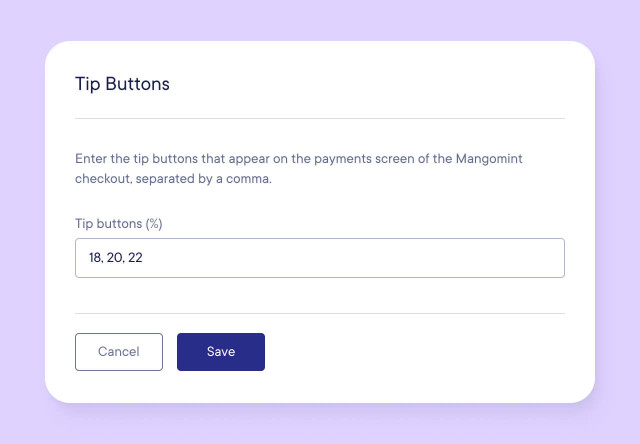
Where does this leave med spa clients? How can you tell if you should tip at a medical spa?
Client guide to med spa tipping: everything you need to know
Tipping is not a “one size fits all” practice — especially in the world of medical spas. So, how can you navigate tipping etiquette during your appointment?
1. Check the medical spa’s policy
The most important consideration in understanding tipping etiquette is the medical spa’s policy. It is best to check this before booking to prepare your expectations and find the right med spa for you. In general, medical spa policies will fall under one of five categories:
Tips not accepted: For the reasons listed above, your medical spa might have a strict “no tipping” policy.
Included fees: Instead of accepting tips, some medical spas will charge an extra upfront service fee to compensate all practitioners adequately. However, this should be a standard fee rather than a commission-based charge to comply with the Code of Medical Ethics.
Circumstantial policy: Let’s say you are at a med spa that offers both medical and traditional spa services. In these cases, clients might be expected to use their best judgment on gratuity. For example, you would be expected to bypass the tipping option after a medical service, like Botox and fillers. Conversely, if your appointment was with a non-medical esthetician who rents booth space in your med spa, tipping may be encouraged.
Tips accepted but not expected: Some medical spas will allow gratuity while explaining it is not an expectation. In these cases, you can leave a small tip if you feel your service was exceptional or leave a standard tip at the end of a service series. For example, clients under this policy might not tip after each laser hair removal appointment — but they may leave a tip after the entire service is completed.
Tipping encouraged/expected: Depending on local laws, some medical spas will actively encourage tipping. Before you object, there may be good reasons for this policy. While physician-led med spa services are often a no-gratuity zone, services led by other professionals might be more inclined to encourage tipping (much like you would at a standard spa). Consider asking your med spa for more details about this policy if you have any questions or concerns.
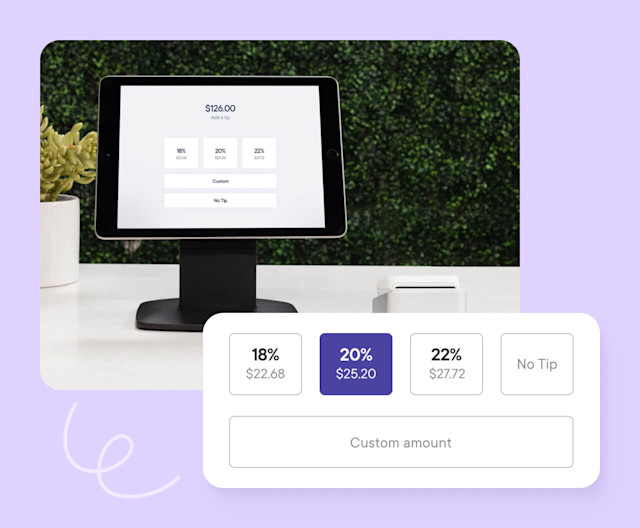
2. Find a med spa that meets your preferences
Tipping can be a touchy subject that many individuals feel passionately about. Some clients might feel uncomfortable walking out of a spa without leaving a tip — while others might feel wary about tipping in a medical environment. Be sure to listen to your gut when booking an appointment. When possible, find a practice that meets your tipping preferences.
3. Don’t be afraid to ask
You might find yourself nearing the end of your appointment when tipping uncertainty settles in. Instead of frantically searching for advice online, simply ask your provider about their tipping policy. It is better to raise this small question than leave yourself in an uncomfortable situation.
4. Other ways to thank your medical spa
If your med spa does not accept tips, you might look for creative outlets to express your appreciation. Thankfully, there are plenty of other ways you can show your gratitude:
Referrals: Recommend your medical spa to friends, family members, and coworkers. Word-of-mouth advertising can be vital in helping local businesses grow. However, many medical spas cannot request or reward referrals under the Anti-Kickback Statute. As such, it is up to you to independently spread the word about your local med spa.
Pre-booking: If you enjoyed your service, consider booking your next visit before leaving the office. Pre-booked services can give providers more stability. Plus, this will secure your spot for your next appointment.
Leave a review: According to research by Dixa, 93% of customers consider feedback from reviews when making a spending decision. It is free to leave a review for your medical spa, and sharing your positive experiences can help local businesses thrive.
Sending something to the office: While it should never be an expectation, non-financial gratuity can be seen as a thoughtful way to thank med spa professionals who have helped you look and feel your best. Sending cookies, flowers, or a thank you card can go a long way for those who feel inclined to express gratitude.
Mangomint’s salon and spa software
Mangomint offers support for medical spas that need a secure, HIPAA-compliant, intelligent platform for payment processing, medical spa booking, employee management, client management, and so much more. If you haven’t tried the Mangomint platform yet, consider signing up for a free trial or booking a live demo to get started today!

